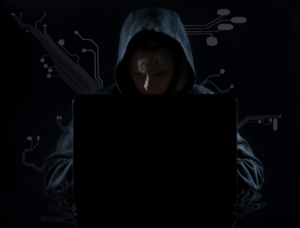Fear of Fraud trumps Terrorism
Okay, what’s more likely? Getting bombed … or some punk racking up charges on your credit card?
 The yearly Crime Poll says that two-thirds of the respondents were edgy about data breaches involving their credit cards, as well as their computer and smartphones getting hacked—far more so than being robbed or taken hostage.
The yearly Crime Poll says that two-thirds of the respondents were edgy about data breaches involving their credit cards, as well as their computer and smartphones getting hacked—far more so than being robbed or taken hostage.
It’s easier to thwart a mugger or burglar than it is to thwart cybercrime. Just because you never click links inside e-mail messages doesn’t mean a cybercriminal won’t still figure out a way to nab you.
Interestingly, many people who’ve been digitally victimized don’t even bother filing a police report, says the survey. But a much higher percentage of burglary and mugging victims will.
Maybe that’s because 1) They know it will be easier to catch the thug, and 2) It’s way more personal when a masked man jumps you on the street and hits you with a brick, versus some phantom from cyberspace whose body you never see, voice you never hear, hands you never feel—even though they drain your bank account dry.
But which would you rather have? An ER visit with a concussion and broken nose from the mugger, or a hacked credit card? The Fair Credit Billing Act allows you to dispute unauthorized charges on your card statement and get other things straightened out. And until you pay the whopping bill, your account isn’t robbed.But if someone hacks into your debit card, they can wipe out your checking account in a flash.
The good news is that often, cyberthieves test the waters of the stolen data by making initially small purchases…kind of like a would-be mugger feeling out a potential victim by initially asking her for the time or “accidentally” bumping into her.
A credit card can have varying levels of alerts that can notify the holder of suspicious activity. An example is a charge over $1,000 nets a text message to the holder about this. However, if you set a much lower threshold, you’ll know sooner that the data or card was stolen. Don’t wait till the thief makes a huge charge to be alerted. The lower that threshold, the sooner the card company will contact you and then initiate mitigation.
You know how to prepare for a mugger (pepper spray, self-defense lessons, etc.), but how do you protect your credit and debit cards?
- Check your credit card statements thoroughly.
- Don’t put off contacting the company over a suspicious charge.
- All of your devices should require a password to log on.
- Use encryption for all of your devices.
- Always use your bank’s ATM, never a public kiosk.
- Never let an employee take your card out of your sight.
Robert Siciliano is an identity theft expert to BestIDTheftCompanys.com discussing identity theft prevention. For Roberts FREE ebook text- SECURE Your@emailaddress -to 411247. Disclosures.


























